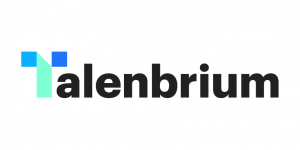Ireland’s Pharma and Biotech Sector Strengthens Its Digital Core, Poised for 50% Tech Workforce Growth by 2030
Ireland's pharmaceutical and biotechnology sector employs approximately 8,200 technology professionals as of 2024
Ireland Top 30 Trending Roles in the Pharma & Biotech Industry: Strategic workforce planning, Hiring Trends, In Demand Skillsets, Demand Push, Salary Benchmarking, job demand and supply”
KARLSRUHE, GERMANY, November 12, 2025 /EINPresswire.com/ -- Ireland’s pharmaceutical and biotechnology sector is undergoing a major digital transformation, marking a decisive shift from traditional manufacturing to technology-driven operations. As of 2024, the sector employs around 8,200 technology professionals, representing 26% of its total workforce. By 2030, this number is expected to grow to 12,400, a 7.1% annual growth rate that significantly outpaces the broader Irish technology sector’s average growth of 4.2%.— By Florian Marthaler
This expansion highlights the sector’s rapid adoption of digital tools in drug discovery, clinical trials, and regulatory compliance, underscoring Ireland’s status as a leading European hub for advanced life sciences and innovation.
Technology Roles and Industry Drivers
Ireland’s pharma-tech workforce is divided into four major clusters:
Engineering and Platform roles (42%) – managing cloud infrastructure, system integration, and manufacturing execution systems.
Data and AI specialists (31%) – supporting clinical analytics and drug discovery algorithms.
Cybersecurity and Risk Technology (16%) – ensuring regulatory compliance and data protection.
Product and Experience roles (11%) – creating patient and clinician-facing applications.
Download Preview: https://www.talenbrium.com/report/argentina-top-trending-roles-in-the-agritech-and-foodTech-industry/download-sample
Key growth drivers include AI-driven drug discovery, regulatory system modernization, and open data initiatives for clinical transparency. Global frameworks such as the European Medicines Agency’s Digital Transformation Roadmap and the U.S. FDA’s Technology Modernization Plan continue to fuel investment and job creation in Ireland’s pharma ecosystem.
Rising Job Demand, Tight Talent Supply
Talent demand has surged by over 40% since 2020, with bioinformatics specialists, data scientists, and regulatory technology professionals among the most sought-after. However, talent supply remains tight. Although Ireland’s universities produce roughly 3,000 STEM graduates annually with relevant qualifications, only 15–20% enter pharma or biotech roles directly.
This supply-demand imbalance has created a shortfall of 800–1,200 skilled professionals, leading to extended hiring cycles of 4–6 months for senior positions. Regulatory technology and bioinformatics roles often take even longer to fill due to niche skill requirements.
Competitive Pay and Workforce Trends
Ireland’s life sciences professionals command notable salary premiums over general IT roles, reflecting the industry’s high regulatory standards and specialized technical expertise.
Data Engineer (Pharma): $95,000 (+8.2%)
DevOps Engineer: $88,000 (+6.5%)
QA Automation Lead: $105,000 (+7.8%)
Clinical Data Manager: $92,000 (+5.9%)
Regulatory Systems Analyst: $85,000 (+9.1%)
Dublin continues to lead in pay, offering 20–30% higher compensation than regional centers like Cork and Limerick. Companies are increasingly using retention bonuses and hybrid work options to attract and retain skilled professionals.
Evolving HR Models and Future Roles
The sector faces new human capital challenges as organizations transition from rigid role structures to flexible, skills-based models. Attrition is highest in AI, data science, and cybersecurity, areas where competition from multinational and tech firms is intense.
By 2030, new roles will emerge to reflect the convergence of technology, science, and regulation, including:
AI Governance Officers – ensuring transparency and compliance in algorithmic systems.
Regulatory Automation Specialists – managing digital submissions to global agencies.
Sustainable Bioprocess Engineers – leading the sector’s green transformation.
Digital Therapeutics Product Managers – combining clinical knowledge with software design.
Biodata Privacy Officers – ensuring GDPR compliance in real-world data use.
Automation and Productivity Outlook
Automation is reshaping operations, with up to 70% of repetitive tasks in manufacturing and quality assurance now automatable. However, automation is creating more augmented roles than it replaces. Most affected workers are being redeployed into higher-value analytical and supervisory positions, achieving 20–35% productivity gains across key functions.
Economic Momentum and Investment Landscape
Ireland’s macroeconomic environment continues to support strong sector growth.
GDP growth: 5.1% in 2023
Life sciences share: 8.2% of national output
Capital expenditure: €2.8 billion in 2023 (+15% YoY)
Government programs like the Enterprise Ireland Digital Transformation Initiative (€165 million) and the National Development Plan (2021–2030) are driving investments in advanced manufacturing and digitalization. Between 2025 and 2030, the sector is expected to add up to 22,000 jobs, two-thirds of which will be technology-related.
Education and Talent Development
Leading universities play a vital role in shaping Ireland’s pharma-tech pipeline. Trinity College Dublin, University College Dublin, and University College Cork produce the largest number of industry-ready graduates. The Action Plan for Apprenticeship and Traineeship is also creating pathways for bioprocess and quality assurance technicians, helping narrow the skills gap.
Industry Leaders and Regional Hubs
Multinationals dominate Ireland’s pharmaceutical landscape:
Pfizer employs 3,400 people in Cork, its largest global site.
Johnson & Johnson and Roche maintain significant presences in Limerick and Dublin.
Indigenous firms such as Sigmoid Pharma and Malin Corporation are gaining ground in R&D and biotech innovation.
Dublin remains the talent epicenter with 60% of the sector’s workforce, followed by Cork (8,400 professionals), Galway, and Limerick, each contributing specialized capabilities.
Global Talent and Outlook
Ireland attracts a diverse international workforce, with foreign-born professionals making up 35% of new hires. Many arrive from established pharma hubs like Switzerland, Germany, and the U.S., drawn by Ireland’s strong regulatory environment and leadership opportunities.
As Ireland deepens its position as a European life sciences hub, its pharmaceutical and biotechnology sector is expected to continue setting benchmarks in digital transformation, sustainable bioprocessing, and AI-driven research — strengthening both the nation’s economy and its role in global health innovation.
Florian Marthaler
Talenbrium
+1 734 418-0728
info@talenbrium.com
Visit us on social media:
LinkedIn
Facebook
Legal Disclaimer:
EIN Presswire provides this news content "as is" without warranty of any kind. We do not accept any responsibility or liability for the accuracy, content, images, videos, licenses, completeness, legality, or reliability of the information contained in this article. If you have any complaints or copyright issues related to this article, kindly contact the author above.

